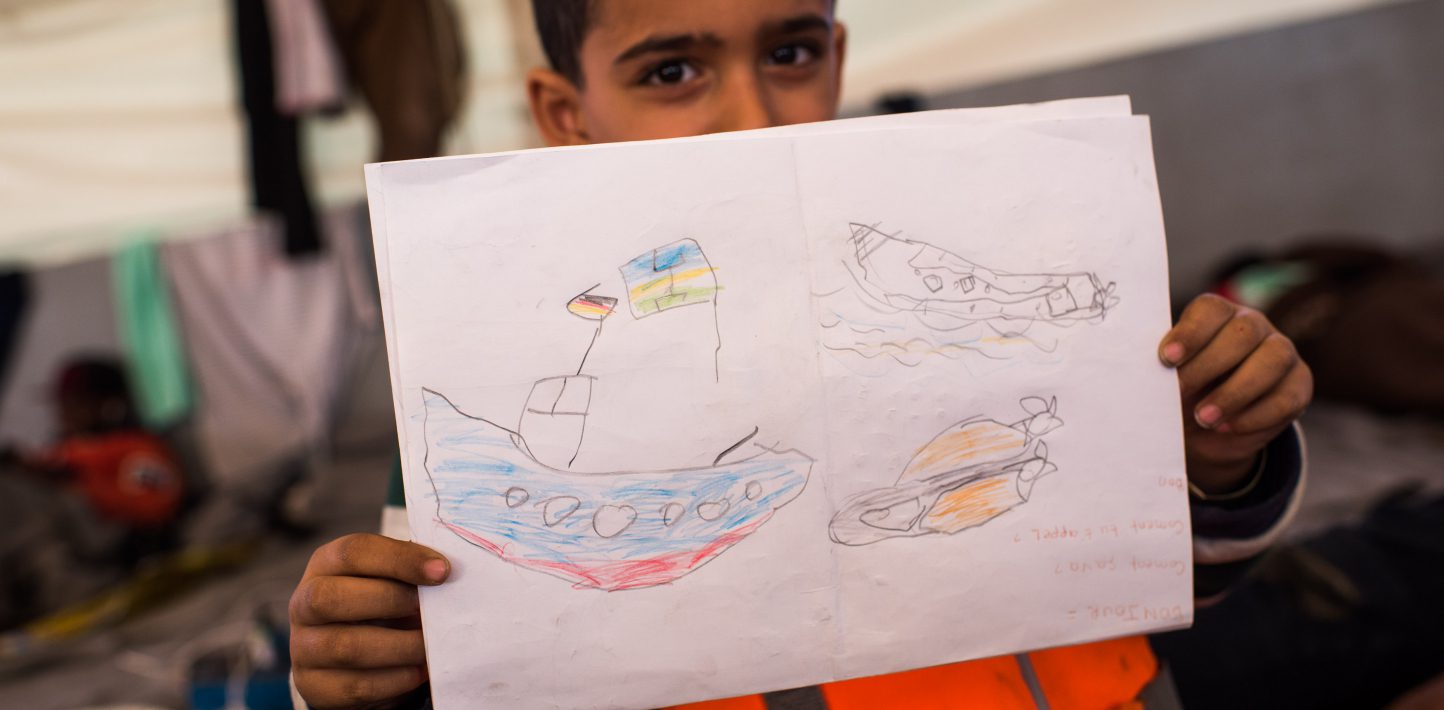An agreement reached in Valletta today on a temporary mechanism for disembarking people rescued in the Central Mediterranean is a positive step for protecting the rights of refugees and migrants, Amnesty International said today.
The agreement has been announced by the Ministers of the Interior of France, Germany, Italy and Malta, and representatives of the Presidency of the Council of the European Union and the European Commission.
We hope this mechanism will put an end to the obscene spectacle of people left stranded on boats for weeks waiting to know where, or even if, they can disembark
Eve Geddie, Director of the EU Office at Amnesty International
“Details of the agreement are still to be disclosed, but we expect it to lead to the establishment of a reliable system to ensure that people rescued in the Central Mediterranean are promptly and safely disembarked in Europe and that EU countries step up and share responsibility for them,” said Eve Geddie, Director of the European Institutions Office at Amnesty International.
“We hope this mechanism will put an end to the obscene spectacle of people left stranded on boats for weeks waiting to know where, or even if, they can disembark. Speedier disembarkations are essential for those rescued in the Central Mediterranean who have often already suffered horrific abuse in detention centres in Libya and a perilous sea journey – they are exhausted and in need of protection and care.”
NGOs undertaking search and rescue have faced criminal prosecutions, the impounding of their vessels, the imposition of heavy fines and the arrest of their staff just for upholding the duty to save lives at sea and trying to disembark them in a safe place.
Having disembarked a significant number of people this year, without adequately preparing for such scenario, Malta’s reception and asylum system is strained. Hundreds of men, women and children are held in sub-standard conditions. Many of them have been unlawfully detained, as they are held far longer than the maximum period permitted by national law, which is intended only to allow for medical checks on arrival.
“While we hope the new mechanism will assist Malta with the pressures on its asylum and reception system, Maltese authorities must understand that there is no place nor excuse for arbitrary detention in Malta”, said Eve Geddie.
Lawyers and representatives of organizations who regularly visit the detention facilities told Amnesty International that the centres were seriously overcrowded, that separation between adults and children is not ensured, and that conditions are squalid with people having inadequate access to basic necessities such as clean underwear and toiletries.
“Although limited to people rescued in the Central Mediterranean, today’s agreement is a sign that European leaders may be finally stepping up to manage migration towards Europe more responsibly and humanely. Now it is paramount that more member states join soon,” said Eve Geddie.
For more information or to arrange an interview, contact Amnesty International press office on [email protected] +32 2 548 27 73 or +32 483 680 812
BACKGROUND
Amnesty International has repeatedly called on European governments to set up a predictable disembarkation and relocation mechanism to promptly address the needs of people rescued in the Central Mediterranean.
See: https://www.amnesty.org/en/documents/eur01/9961/2019/en/ https://www.amnesty.org/en/latest/campaigns/2019/01/cut-adrift-in-the-med/
Maltese
authorities did not allow Amnesty International’s researchers present in Malta
last week to visit the Initial Reception Centre or its extension at
the Safi Barracks, near Luqa, where refugees and migrants are held.
However, they acknowledged that the situation in the centres
was challenging due to the insufficient physical space, the number of
people disembarked and the lack of resources to process claims.


